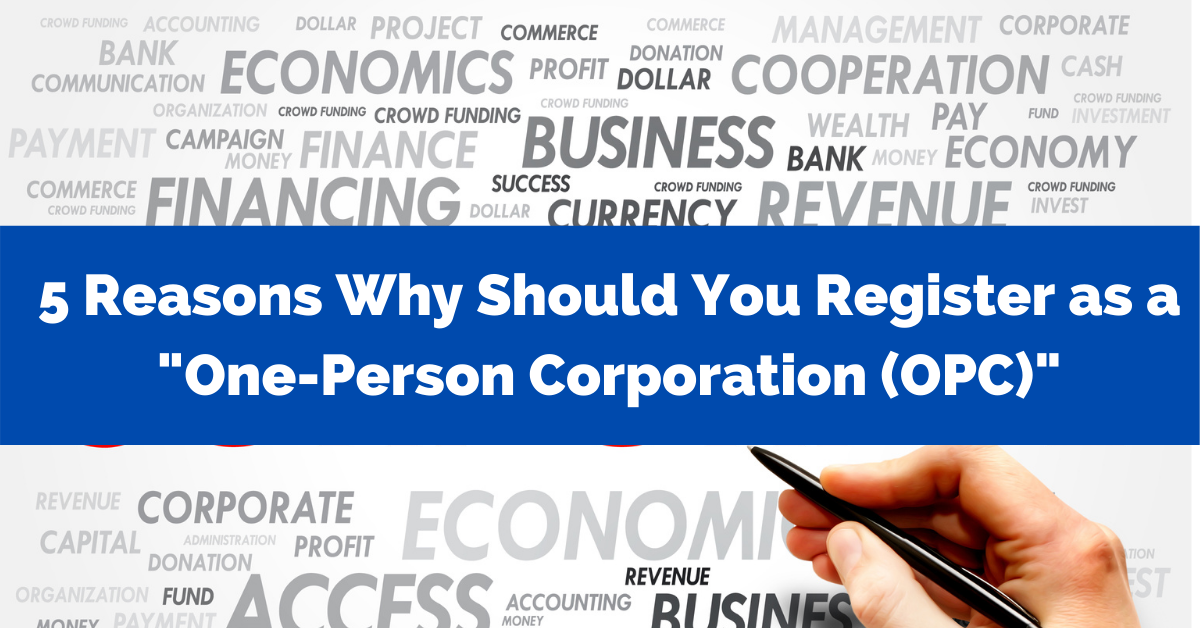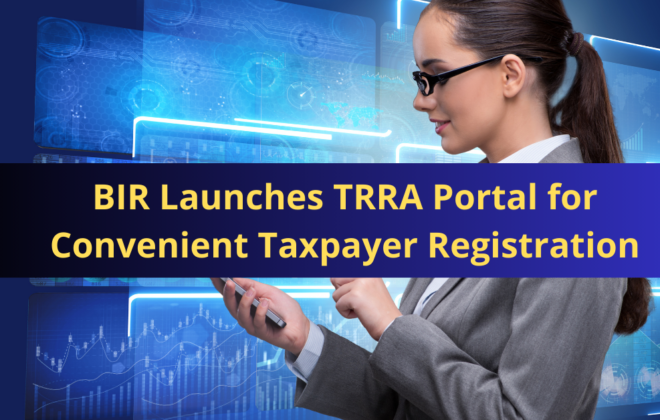5 Reasons Why Should You Register as a “One-Person Corporation (OPC)”
The Revised Corporation Code (RCC) presented the One-Person Corporation concept to answer business owners’ needs and make doing business in the country easy.
The OPC is an organization with a single shareholder. It allows business owners to register a corporation without looking for five incorporators required under the old corporation code.
What are the benefits of a One-Person Corporation?
1. OPC is easy to organize and register.
An entrepreneur can organize a corporation without the need to look for other incorporators.
Under the Revised Corporation Code (RCC), business owners can register their businesses as an OPC and enjoy the rights and privileges that organized corporations can do.
The process is simplified and requires less paper works. The enterprise is still required to register with the Securities and Exchange Commission and submit the Articles of Incorporation. The Corporation’s By-laws are no longer needed.
2. The sole stockholder is not obliged to generate a minimum paid-up capital.
Since the key beneficiary of the RCC are the Medium, Small, and Microenterprises, they are not required to provide a minimum capitalization when they register an OPC (except for some companies that are obliged by law.)
This initiative encourages small entrepreneurs to convert their business to corporation set-up and avail of more tax incentives under the Tax Reform for Acceleration and Inclusion (TRAIN) law.
3. An OPC is only liable up to the assets of the corporation.
Before the RCC, entrepreneurs who couldn’t form a 5-member corporation opted to register their business as a sole proprietorship. Thus, creditors can run after the business and personal assets of the business owner.
In an OPC set-up, the risk is limited. Since the corporation is a separate entity, stakeholders may run after the business assets only in cases of default.
4. The business owner under OPC can apply for a bank loan quickly.
Generally, an OPC is a one-person entitlement. The lone stockholder assumes many of the executive functions. Given this simple business organization, significant decisions are approved and implemented immediately.
5. The TRAIN bill offers higher tax incentives to corporations than individual taxpayers,
When taxes are concerned, corporations get significant tax incentives under the TRAIN law. A corporation can avail of the 40% Optional Standard Deduction (OSD) from the gross income after deducting the direct cost. In contrast, sole proprietors pay 40% of their gross sales or receipts as business tax.
Generally, this tax provision benefits the corporation since 40% OSD is based on the gross income minus the direct cost, while the computation of tax due for individual taxpayers is based on the gross income.
One-Person Corporation Supports MSMEs
The RCC included several provisions to answer the government’s call; to improve the country’s public offices’ services. One of the provisions that are interesting to discuss is the One-Person Corporation (OPC) concept.
OPC allows people in business without partners to formally organize their businesses. While the OPC promise is hardly noticeable, it is a big step towards supporting small business owners to survive this challenging business climate.
We can help you formalize your business.
Registering your business requires a lot of paper works and endless queues. Concentrate on growing your business while we do the paperwork for you. You may email us at info@djkaaccounting.com or send us a message on Facebook: https://www.facebook.com/djkaaccounting for your business registration and licensing needs.
Related Posts
Recent Posts
- New Features and Functionalities of the Online Registration and Update System (ORUS)
- A Comprehensive Guide to Taxation for Freelancers in the Philippines
- New Tax Laws in 2024: What Changes Filipino Taxpayers Should Prepare For
- How to Avoid Common Tax Mistakes in 2024
- Tax Deductions and Benefits Often Overlooked by Filipino Taxpayers





